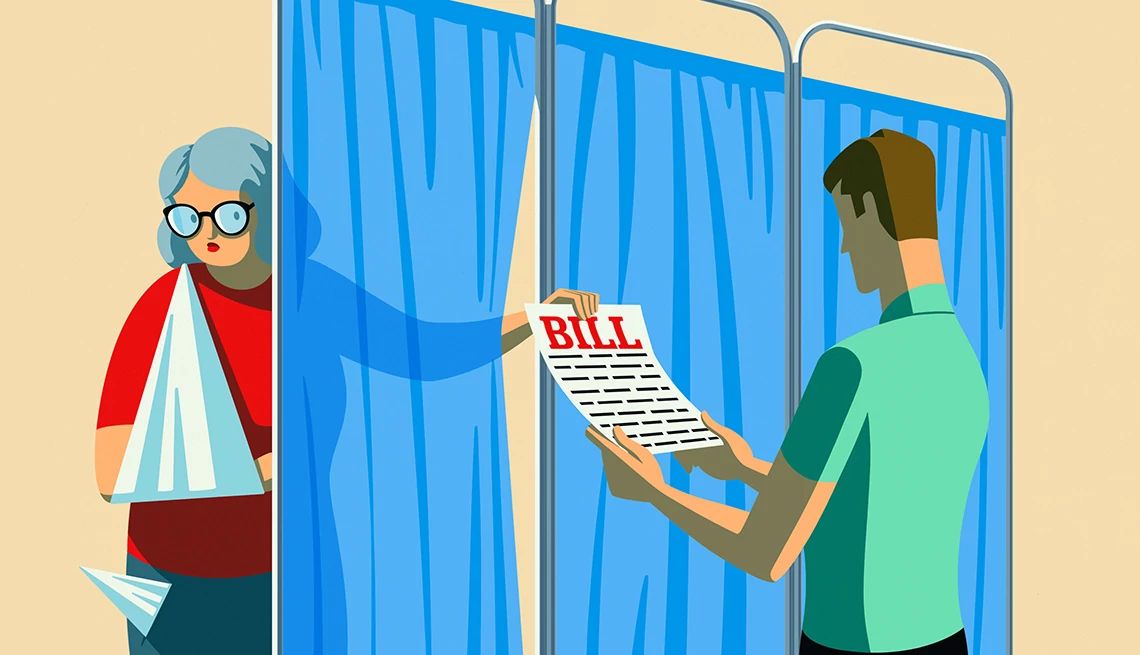AARP Hearing Center


If you’re facing unpaid medical bills, you’re hardly alone.
More than 1 in 5 U.S. adults ages 65 and older report having some form of debt due to medical or dental bills for their own or someone else’s care, according to the latest data from health care research organization KFF, formerly the Kaiser Family Foundation.
The consequences can be detrimental. Nearly 3 in 10 Medicare-age adults with health care debt say their household has been contacted by a collection agency, while 23 percent say health care debt has hurt their credit score. (In January, the Consumer Financial Protection Bureau finalized a rule that would ban medical debt from most credit reports, but credit industry groups are challenging the mandate in federal court.)
Furthermore, 42 percent of older adults with health care debt say they’ve cut back their spending on food, clothing or basic household items.
The bottom line: Many older adults are saddled with medical debt, and a large number of them are struggling to pay it, forcing some to turn to loved ones for help.
Our etiquette columnist offers a parent advice on how to ask her son for financial assistance.
I received a large medical bill for an emergency surgery, but I don’t have enough money in savings to pay it. My son and daughter-in-law are very comfortable financially, and I believe they have the means to help me out, but I’m ashamed to admit to them that I need help. How do I ask them for money without them viewing me as a charity case?


Money Manners
Lizzie Post is AARP's financial etiquette columnist. She is the great-great-granddaughter of etiquette legend Emily Post. She’s also the co-president of The Emily Post Institute, co-author of Emily Post’s Etiquette: the Centennial Edition and co-host of the Awesome Etiquette podcast.
Reader, I am glad that you were able to get the medical help you needed when you needed it, and I am sorry the result is the weight of a hefty bill.
The truth is, many of us have trouble paying for health care services, and the medical costs that we incur can add a layer of stress, confusion and frustration to our lives. I am sorry you are going through this.
That's where etiquette comes in. I think of etiquette as a magic wand that can help smooth the way when we’re approaching a conversation we’re nervous about. But the truth is, we cannot control what other people think, or how they react to our circumstances. The best we can do is be considerate, respectful and honest with our relationships and interactions with loved ones in an effort to do the best by both them and ourselves.




































































You Might Also Like
My Husband Is Spoiling Our Grandkids
Couples don’t always align when it comes to their grandparenting styles
My Sister and I Both Want Mom's Engagement Ring
Our etiquette expert's advice to siblings on how to navigate disagreements over inheritance
Navigating the Complexities of Tipping Today
Nearly half of baby boomers say U.S. tipping culture has spiraled out of control